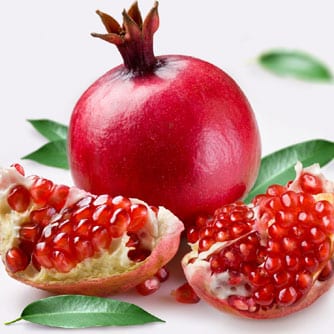Pomegranate, a rich source of antioxidants, has been linked to improved heart health, and a growing body of science indicates the fruit may exert anti-cancer properties. Liwei Gu, from University of Florida (Florida, USA), have found that punicalagins, compounds from pomegranate, self-assemble into nanoparticles with gelatin. The loading efficiency of punicalagin A and punicalagin B in the particles was 94% and 84%, respectively, whereas the loading capacity of the particles for these compounds (without nanoparticles) was 15 and 26%, respectively. Having produced the nanoparticles, the team tested them against a line of leukemia cells, where they demonstrated efficacy at stopping the growth and spread of cancer cells.
Pomegranate Compounds May Exert Anti-Cancer Benefits
Zheng Li, Susan S. Percival, Suzanna Bonard, Liwei Gu. “Fabrication of nanoparticles using partially purified pomegranate ellagitannins and gelatin and their apoptotic effects.” Molecular Nutrition & Food Research, Volume 55, Issue 4, April 2011.




